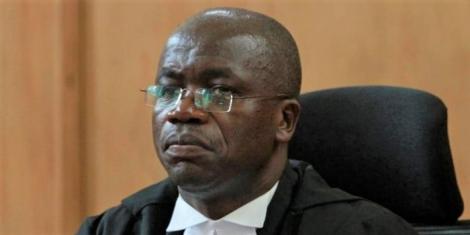The Building Bridges Initiative (BBI) constitutional review process was rendered yet another crippling blow on Friday after the Court of Appeal sustained a Constitutional Court judgment declaring it null and void.
Six of the seven judges who composed the appellate bench upheld the Constitutional Court finding on the application of the basic structure doctrine. Further the judges agreed promoters of the constitution abused the popular initiative constitutional review route.
Justices Daniel Musinga (President), Patrick Kiage, Francis Tuiyott, Gatembu Kairu, Hannah Okwengu and Roselyn Nambuye supported the basic structure doctrine while Fatuma Sichale dissented.
“The making and unmaking of the constitution is a preserve of people exercising their constituent power. By falling short on making provisions and procedure, textual reading of Article 255(1) matches or is in accord with contextual interpretation of the clause that power to change constitution rests elsewhere and need not be codified,” Justice Tuiyott observed.
Read: DP Ruto: God has come through for Kenya,The die is cast
The court also held the basic structure doctrine limits amendment power in Articles 255, 256 and 257 with two judges – Sichale and Okwengu – dissenting.
“The amendments proposed by the BBI initiative were so far reaching in character, scope and content as to shake the foundation and alter the identity and character of the Constitution,” Justice Kiage stated.
Justices Musinga, Kiage, Tuiyott and Nambuye rendered a majority verdict upholding the Constitutional Court judgement that stated primary constituent power with regard to eternity clauses could only be invoked through a four-phased process entailing civic education; public participation and collation of views; Constituent Assembly debate; and ultimately, a referendum. Okwengu, Sichale and Kairu dissented.
“Being living document must change as the society changes, that a living constitution must be flexible to allow for a country’s growth and the review of a Constitution is essential so as to cater for new and unforeseen problems and hence it is inadvisable to have a constitution that is cast in stone,” Lady Justice Sichale stated in her dissenting opinion.
Read: Court directs police to vacate LSK premises with immediate effect
All the judges except Tuiyott also held the position that civil proceedings could be instituted against the President for his actions or inaction in the conduct of official duties.
On whether the President has authority to initiate constitutional amendments, the court was unanimous that the Head of State could not do so affirming the May 14 decision by Justices Prof Joel Ngugi, George Odunga, Jairus Ngaah, Chacha Mwita and Matheka Mumbua.
“His Excellency the President cannot be a wanjiku (ordinary citizen). I agree with the High Court that the President cannot initiate changes through popular Initiative,” Lady Justice Sichale stated.
“The president’s involvement in the BBI was not in his private capacity. It was also necessary for the public to be supplied with adequate copies of the Bill for their consumption before collection of their signatures,” Justice Kairu added.
Read: Mudavadi: I cautioned BBI team against ombudsman
The Court of Appeal also unanimously upheld the verdict by the Justice Ngugi-led Constitutional Court bench that the BBI steering committee had no legal capacity to propose amendments to the constitution through a popular initiative provided for under Article 257 of the Constitution.
Having found the steering committee, the court sustained the Constitutional Court decree that the BBI Constitution Amendment Bill is illegal terming it “unconstitutional and a usurpation of the People’s exercise of sovereign power.”
The court also ruled that the amendment could not be subjected to a referendum in the absence of evidence of continuous voter registration by the Independent Electoral and Boundaries Commission (IEBC), and that the verification of signatures in support of the proposed amendments was null and void since IEBC lacked the statutory quorum of four commissioners.
The Court of Appeal however set aside orders citing President Uhuru Kenyatta, the initiator of the proposed amendments, in violation of Chapter 6 of the Constitution and the BBI taskforce gazetted by the President unconstitutional.
Read: Chaos, violence, mockery as UDA, Wiper clash at a funeral in Machakos
Justices Musinga, Tuiyott, Kairu and Sichale also overturned a decision by the Ngugi-led bench requiring proposed amendments submitted as distinct questions in a multiple choice referendum with Nambuye, Okwengu and Kiage.



